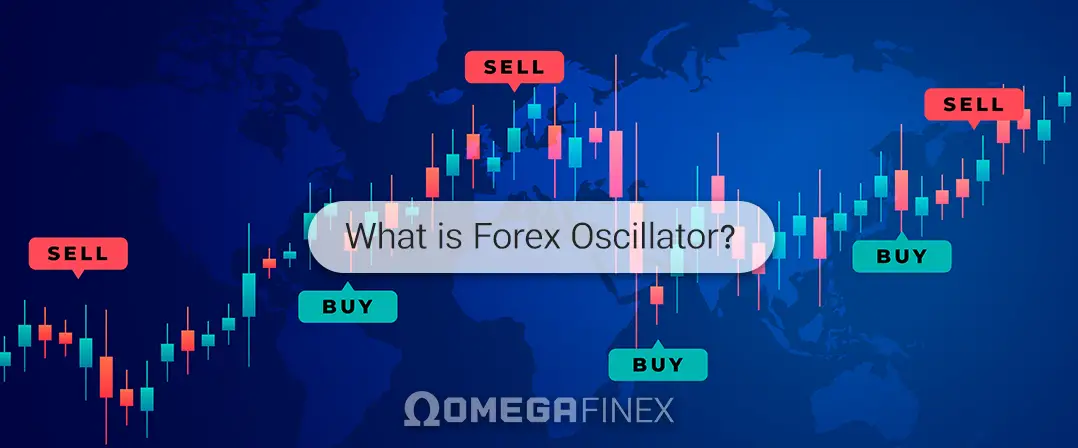
Minimum balance for Forex trading in 2024
One of the key considerations for anyone looking to start Forex trading is the minimum balance for Forex trading set by brokers. Understanding the minimum capital entails grasping the importance and implications of the smallest amount of money a trader must deposit into their brokerage account to start trading currencies in the Forex market. In this comprehensive guide from OmegaFinex Broker, we will explore all aspects of minimum balance for Forex trading, examine its significance, the factors influencing it, and how to navigate this vital aspect of the Forex market.
Understanding minimum balance for Forex trading
The minimum balance for Forex trading is the smallest amount of money a broker requires you to deposit into your trading account to start trading. This amount serves as your initial capital and enables you to execute trades in the Forex market. Minimum deposit requirements can vary significantly among brokers and are influenced by various factors such as the broker’s business model, regulatory requirements, and the type of trading account offered. Below are details of understanding Forex minimum deposits:
Initial Capital Requirement: The minimum deposit signifies the initial capital required by a broker to open accounts for clients. This minimum balance for Forex trading acts as a foundation for executing trades in the Forex market. Traders must deposit at least this amount to access brokerage services and start trading currencies.
Accessibility: Understanding the minimum balance for Forex trading is crucial for assessing access to Forex trading for different individuals. A lower minimum deposit requirement makes Forex trading more accessible to a wider range of traders, including those with limited capital. This allows eager traders to enter the market and participate in currency trading activities without a significant initial investment.
Brokerage Policies: Different brokerage firms establish their own minimum deposit requirements, which can vary considerably. Understanding these requirements involves researching and comparing brokerage policies to find a provider that aligns with your financial situation and trading goals. Some brokers offer accounts with very low minimum balance for Forex trading requirements, while others may require higher initial investments.
Types of Accounts: Forex brokers typically offer various types of trading accounts, each with its own minimum deposit requirement. These types of accounts may include standard accounts, micro accounts, or other account types tailored to traders with different risk preferences and capital sizes. Understanding the minimum balance for Forex trading helps traders select the most suitable option based on their goals and financial resources.
Trading Conditions: Traders should consider not only the minimum balance for Forex trading and deposit but also other trading conditions offered by brokerage companies, such as leverage, spreads, commissions, and trading platforms. These factors can impact overall trading experience and profitability. Understanding how minimum deposits relate to trading conditions allows traders to make informed decisions when choosing a broker.
Risk Management: Understanding the minimum balance for Forex trading is essential for effective risk management in trades. Traders should only deposit an amount they can afford to lose and avoid excessive leverage. Sufficient risk management helps protect capital and minimize potential losses in the volatile Forex market.
In summary, understanding the minimum deposit in Forex necessitates recognizing its importance as the minimum balance for Forex trading required to enter Forex and start currency trading. This entails evaluating accessibility, brokerage policies, account types, trading conditions, and risk management considerations for informed decision-making when entering the Forex market.
Factors Influencing Minimum Balance for Forex Trading
As mentioned, the minimum balance for Forex trading level will vary among different brokers, and numerous factors will affect it. Some of these factors are outlined below:
- Broker Type: There are various types of brokers in the Forex market, including market makers, ECN (Electronic Communication Network) brokers, and STP (Straight Through Processing) brokers. Each type may have its own minimum deposit requirement based on its services and business model. Market makers may offer accounts with lower minimum balance for Forex trading, while ECN brokers typically require a higher initial investment.
- Regulatory Requirements: Brokers are often regulated by financial authorities in their respective jurisdictions. These regulatory bodies impose specific laws and standards, including minimum balance for Forex trading requirements for brokers, to ensure the safety of customer funds. As a result, brokers may set their minimum deposit requirements to comply with these regulations.
- Types of Trading Accounts: Brokers typically offer various types of trading accounts tailored to different trading styles and capital sizes. For example, they may offer standard accounts or other account types, each with its own minimum deposit requirement. Mini and micro accounts usually have lower minimum balance for Forex trading compared to standard accounts, making them more accessible to traders with smaller budgets.
- Market Conditions: Minimum deposit requirements may also be influenced by market conditions and competition among brokers. In a highly competitive market environment, brokers may reduce their minimum balance for Forex trading and deposit requirements to attract more clients and remain competitive.
Choosing the Right Broker
When selecting a broker for Forex trading, it is essential to consider factors other than just the minimum deposit requirement and the discussion of minimum balance for Forex trading. Here are some other factors to consider:
- Regulations and Reputation: Choose a broker regulated by a reputable financial authority to ensure transparency and the safety of funds.
- Trading Platform and Tools: Evaluate the trading platform provided by the broker such as MetaTrader 5 or MT4, including its features, usability, and compatibility with your trading strategy.
- Spreads and Commissions: In addition to the minimum balance for Forex trading, compare the spreads, commissions, and other fees charged by different brokers to find competitive pricing suitable for your trading style.
- Customer Support: Assess the quality and responsiveness of the broker’s customer support team, as timely assistance can be crucial during trading hours.
Increasing Capital for Trading with Prop Trading
If you don’t have a lot of money to invest initially and the minimum balance for Forex trading is also not within your means, increasing your deposit to start trading using Prop Trading companies or Prop firms can be an excellent option. Prop trading companies offer the capital required for trading in financial markets to eager traders, usually in exchange for a share of the profits earned. Below, we discuss how Prop firms can assist traders who lack the minimum balance for Forex trading:
Access to Capital: Prop firms have made access to the minimum balance for Forex trading easier for individuals and allow traders to access significant amounts of capital, enabling them to trade larger positions than what they could with their own capital. This access empowers traders to increase their potential profits and take advantage of market opportunities they might otherwise miss out on.
No Need for Personal Investment: Unlike traditional trading where traders use their funds to finance their trades, Prop Trading allows individuals to start trading without personal investment. Instead, traders use capital provided by the Prop firm, reducing the financial risk associated with trades.
Risk Management Support: In addition to providing minimum balance for Forex trading and more, Prop firms often offer support and guidelines for risk management to help traders navigate the market confidently. This may include predefined risk limits, position sizing strategies, and real-time monitoring of trading activities to ensure compliance with risk parameters. By adhering to these risk management protocols, traders can minimize potential losses and protect their capital.
Education: Many Prop firms offer comprehensive educational programs and resources to help traders develop their skills and knowledge. These programs may cover various topics such as technical analysis, trading strategies, risk management, and trading psychology, providing excellent service alongside providing the minimum balance for Forex trading.
Performance-Based Funding: Prop Trading companies typically allocate capital to traders based on their performance and profitability. Traders demonstrating consistent profitability and effective risk management may receive more capital allocation or access to higher levels of leverage. This performance-based funding model incentivizes traders to focus on generating profits while simultaneously minimizing losses.
Profit-Sharing Arrangements: Traders in these companies, in addition to receiving a share of the profits from their trading activities, often benefit from profit-sharing arrangements with the company. This means that a portion of the profits earned by traders is returned to them, further increasing their income and helping them grow their capital over time.
Access to Technology and Advanced Tools: Prop firms usually provide traders with access to advanced trading technology and tools alongside offering capital even beyond the minimum balance for Forex trading. These tools enable traders to analyze market trends, execute trades efficiently, and stay competitive in fast-paced financial markets.
Overall, Prop firms offer eager traders an opportunity to enter financial markets with limited personal capital and even without the minimum balance for Forex trading and access to the necessary resources and support for success. By leveraging capital, education, and support provided by Prop Trading companies, traders can increase their minimum balance for Forex trading and pursue their financial goals with confidence.
Summary
The minimum balance for Forex trading is a fundamental aspect of Forex trading that impacts accessibility, risk management, and overall trading experience. Traders should carefully assess their financial situation, trading goals, and brokerage options before making decisions. With an understanding of the factors affecting the minimum balance for Forex trading and the offerings and support provided by reputable Prop Trading companies, traders can start their Forex trading journey confidently and position themselves for success in the dynamic Forex market.






